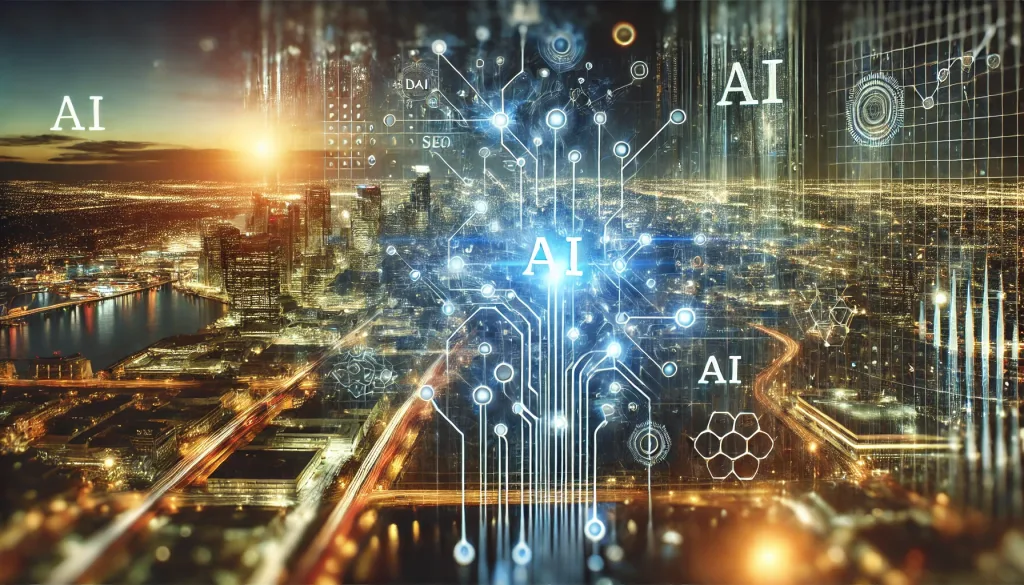
The Role of Machine Learning in SEO
In today’s dynamic digital landscape, SEO (Search Engine Optimization) has become more complex and sophisticated due to the integration of machine learning (ML). Once focused solely on keywords and backlinks, SEO now prioritises user intent, content quality, and contextual relevance. Machine learning drives this transformation by enabling search engines to process and analyse data in ways that were previously impossible. This article delves into how machine learning is revolutionising SEO, making it essential for businesses and digital marketers to adapt to these changes.
Introduction to Machine Learning and Its Impact on SEO
Machine learning, a subset of artificial intelligence, involves training algorithms to learn from data and improve over time without explicit programming. In the realm of SEO, machine learning powers search engine algorithms to deliver precise, personalised search results. This technology enhances a search engine’s ability to interpret user queries, understand context, and evaluate content quality.
SEO strategies have shifted significantly due to machine learning. Previously, optimisation relied heavily on keywords and metadata. Now, search engines like Google utilise machine learning to prioritise user satisfaction. This evolution emphasises high-quality, user-centred content that meets specific needs rather than rigid adherence to outdated ranking factors.
For example, Google’s RankBrain, a machine learning-based system, processes complex and ambiguous queries. It interprets user intent by analysing search patterns and historical data, ensuring relevant and accurate results. This level of sophistication has elevated the importance of producing content that is not only optimised for search engines but also genuinely valuable to users.
How Machine Learning Influences Search Engine Algorithms
Machine learning has profoundly impacted how search engines operate. Beyond RankBrain, Google’s algorithms incorporate machine learning for tasks like understanding natural language (BERT) and detecting spammy content. These advancements mean SEO professionals must focus on creating content that resonates with human readers while adhering to search engine guidelines.
Furthermore, machine learning assists in detecting and penalising manipulative practices like keyword stuffing and link schemes. By prioritising authentic and high-quality content, search engines ensure a better user experience, rewarding websites that align with these principles.
Personalisation and User Experience
Personalisation has become a cornerstone of modern SEO, and machine learning plays a pivotal role in delivering tailored user experiences. Search engines leverage machine learning algorithms to understand user preferences based on search history, location, and behaviour. This enables them to provide results that align more closely with individual needs.
For businesses, this shift demands a user-centric approach to content creation. Instead of generic strategies, marketers must focus on crafting personalised content that addresses specific pain points and interests. Machine learning enables real-time analysis of user behaviour, allowing websites to adapt dynamically and maintain relevance.
For instance, an e-commerce website can use machine learning to recommend products based on a user’s browsing history and preferences. Similarly, content publishers can optimise their articles to align with trending topics identified through machine learning tools. This adaptability ensures a competitive edge in an increasingly personalised digital landscape.
The Role of Personalisation in Content Ranking
Content personalisation extends beyond individual user preferences to broader audience segmentation. Machine learning enables precise targeting by identifying patterns within demographic data, browsing habits, and engagement metrics. Websites that prioritise personalisation often see higher engagement rates and improved rankings, as search engines reward content that satisfies diverse user needs.
Additionally, machine learning helps in creating dynamic content that adapts to user interactions, fostering longer session durations and higher retention rates. These metrics, in turn, influence SEO success by signalling to search engines that the content is valuable and relevant.

Machine Learning and Predictive SEO
Predictive SEO represents a forward-thinking application of machine learning. By analysing vast amounts of data, machine learning models can forecast future search trends, identify emerging keywords, and anticipate changes in user behaviour. This capability empowers businesses to stay ahead in competitive markets.
One of the primary benefits of predictive SEO is its ability to inform content strategies. Instead of reacting to trends after they occur, marketers can proactively create content that aligns with predicted interests. This approach not only improves visibility but also positions brands as thought leaders in their industries.
For example, predictive SEO tools might highlight a surge in interest around a new technology or consumer product. By developing content early, businesses can capture search traffic as the trend gains momentum. This proactive approach ensures sustained relevance and authority.
Leveraging Machine Learning for Trend Prediction
Machine learning-driven trend prediction goes beyond keywords to encompass broader market insights. By integrating data from social media, industry reports, and user queries, these models provide a comprehensive view of where demand is heading. Businesses can then adjust their strategies to maximise impact.
Moreover, predictive tools can highlight content gaps that competitors have overlooked, presenting opportunities to dominate niche markets. This advantage underscores the importance of adopting machine learning in SEO practices, ensuring businesses remain adaptable and innovative.
In conclusion, machine learning is redefining SEO by enhancing search engine capabilities, personalising user experiences, and enabling predictive insights. For businesses and marketers, embracing these advancements is no longer optional—it is essential. By focusing on creating valuable, user-centric content and leveraging machine learning tools, organisations can achieve sustained success in an ever-evolving digital ecosystem.
